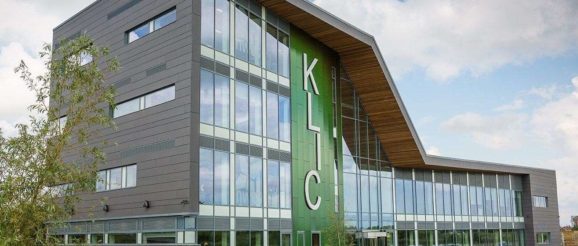King’s Lynn Innovation Centre loans ‘to be repaid in 2024’, meeting told

Millions of pounds in loans obtained to fund the building of a Lynn business hub are due to be paid off in four years’ time, councillors have heard.
A special meeting last night, called to discuss the handling of the King’s Lynn Innovation Centre, was told that the £2.75 million borrowed by operator NWES is now being repaid.
The company had initially failed to pay the money back when it was due to do so in November 2018.
And members of West Norfolk Council’s audit committee were told the full sum is currently due to be paid back in 2024.
But the meeting at Lynn’s town hall also heard that a review of the project, compiled by a cross-party working group, still left many questions unanswered.
Labour backbencher Charles Joyce wondered why councillors and officers were described as “naive” in the report, when he said key questions about the project were asked in its early stages.
He said the council had had a connection with NWES for many years prior to the beginning of the project.
He asked: “Is it the case we can’t trust anyone at this council to tell you the truth or do their job?”
Mr Joyce also claimed the “writing was on the wall” when the company asked for, and sought, a further £250,000 loan from the borough council in 2016.
But council leader Brian Long insisted NWES had a proven track record of delivering similar projects across the region.
He added: “Until they defaulted, there wasn’t a problem. When they defaulted, the problem was dealt with.
“My own personal opinion is that the benefits from the building still outweigh the fact that the procedures we followed as a council were perhaps not as robust as they should be.”
But committee chairman Angie Dickinson, who also led the working group, said the company had a lack of experience of actually building business hubs of that kind.
The working group’s report, which was published last week and is due to be followed by an independent inquiry, outlined 11 separate weaknesses with how the project was run.
It also made a number of recommendations for how similar major schemes should be run in future.
The report said the council now owned an asset worth nearly £2.4 million and was generating an annual return of more than six per cent, far better than might be expected if the invested funds were held in a bank.
But Mr Joyce said the building had cost £6 million to build, rather than the initial estimate of £4 million and the claimed return was overestimated as a result.
However, Mrs Dickinson said: “I don’t think, in any rational sense, the rate of the return is based on the costs of the build.”
Meanwhile, Mr Long said the council would now seek to run similar major projects itself, as it has done with housing schemes around Lynn.
And Graham Middleton, the authority’s cabinet member for business development, claimed all parties needed to promote the site going forward, following recent criticism by a town businessman whose firm moved out because of what he claimed were persistent problems there.
The working group’s report will now be formally presented to a future cabinet meeting.
